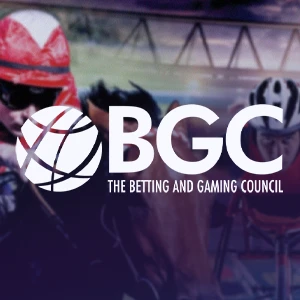Our take on the Gambling Commission CEO's speech at ICE 2024

UK Gambling Commission CEO Andrew Rhodes recently addressed attendees at gaming industry expo, ICE (International Casino Exhibition), in London's Docklands. Unsurprisingly, Rhodes covered several contentious topics at the heart of the British gambling industry in his 6 February speech.
After thanking his colleagues for their hard work in this “ever-evolving” and “highly competitive” industry, Rhodes got down to some of the nitty-gritty:
- The competitiveness of the industry
- Financial risk checks
- UK Gambling Survey
- Illegal, unregulated gambling
Rhodes' overriding message was that moving the industry in the right direction was dependent upon getting a crucial balance right. The balance in question being between “protecting those who need it and not interfering with those who do not,” and it seems to be a focal point for the UKGC at present. No Wagering reported on this tightrope act previously. It’s certainly a complex situation and one that's not going to be solved easily or very soon.
So... what's No Wagering's take on what Andrew Rhodes had to say?
Stifling healthy competition?
There’s no denying that the virility of the UK gambling industry goes hand in hand with its competitiveness. Competition between operators fuels innovation, but if the Gambling Commission pushes things too far, it runs the risk of choking operations and stunting progress.
Rhodes’ speech made multiple allusions to the White Paper and upcoming changes to legislation. He stated that, despite the fact that there is work to do regarding the management and prevention of problem gambling, the proposed changes do not “radically shut down industry’s ability to innovate or to compete with each other".
This statement will likely draw scrutiny, with many in the industry already concerned about the negative impacts of tightening regulations on both players and operators. The reality is that any impositions will impact the competitiveness of the industry to some extent, so the question is really: how much is tolerable? How much 'tightening' can the industry bear before it starts looking and feeling like a different industry altogether?
Financial risk checks
One of the measures likely to be implemented as a result of the White Paper regards financial risk checks to determine whether an individual is gambling within their means.
In his speech, Rhodes remarked that “the reality is, problem gambling is not predictable”, and explained that this is why the Commission feels that background checks are necessary. He also went on to concede that most players give no cause for concern.
“22.5 million people gamble in one form or another each year – 44% of the adult population – and the vast majority do so without any issue, but we hopefully live in a civilised society, where we also recognise the small proportion of people who do experience problems can have life-changing outcomes.”
Using the plight of the minority to give the Commission carte blanche to control the masses hasn’t gone unnoticed by the industry and Gambling financial checks have proven controversial.
It's probably not surprising to learn that different 'strands' of the gambling industry are largely aligned when it comes to financial risk checks.
CEO of the Jockey Club, Nevin Truesdale has called affordability checks "state overreach" and points out that there aren't any financial checks on what people spend on other leisure activities or non-essential purchases. Why gambling then? Late last year Truesdale organised a petition that generated support from more than 100,000 people. It was recently discussed in Parliament and seems unlikely to go away any time soon.
Further details are expected to be published soon, according to Rhodes. Despite his commitment to “a sensible implementation approach, such as phased implementation and use of pilots,” many are apprehensive.
Ensuring that responsible gamblers aren’t isolated or greatly inconvenienced will play a central part in finding the balance that Rhodes mentions.
It remains to be seen what "within their means" looks like. How far will any legislative body be able to probe into an individual's financial position? After all, someone with a net income of £100,000 a year may have outgoings to match whereas someone with a net income of £20,000 may be mortgage-free with annual outgoings of £12,000.
The Gambling Survey of Great Britain
Making the appropriate interventions, Rhodes explains, is largely a matter of gathering evidence. With more robust evidence, the regulator can make more informed decisions.
In an effort to gather more data on gambling behaviours, the Gambling Survey of Great Britain will be published soon. It’s set to be “the most comprehensive data set of its kind in the world”, and it’s hoped that it will shed some light on where the Commission’s efforts and resources are best spent.
The Survey, which is an independent review of British gambling, should be an interesting read. It remains to be seen exactly what its focus will be, but it’s due to be published later this month. And once we have seen it here at No Wagering we'll be sure to comment.
Illegal gambling
Amid concerns and reports that illegal gambling is on the rise, Rhodes makes mention of the Commission's intentions to “keep the legitimate market safe and fair, but to also take further action against illegal online gambling".
Especially concerning is the recent revelation that self-excluded players are being targeted by offshore casino sites.
Rhodes’ speech touches on the possibility of additional powers being granted to the UKGC, which would enable it to more effectively participate in the tackling of offshore gambling sites.
However, this is quite a bold statement. Making sites which operate outside the law inaccessible to UK players would be a monumental task, and not simply a question of resources. It seems unlikely that, no matter what additional resources granted, the Commission would be able to effectively intervene in this respect.
Furthermore, there’s the risk that, by implementing stricter regulations on legitimate gambling sites, the UKGC may drive yet more players to illegal, unlicensed sites and ‘grey market’ casinos. To what extent are recent experiences in Germany a warning to the UK?
What’s next?
Next year, the ICE expo will take place in Barcelona. It should be interesting to compare the state of the industry in 2025 and examine the areas where the Commission and White Paper have succeeded or not. Will it manage to strike that all-important balance Rhodes is looking for?
There is undoubtedly a trade-off here, and at-risk individuals must certainly be protected. As Rhodes concludes, “Getting the balance right is important, and keeping that balance is a job that’s never done.”
The UK is positioned as what Rhodes refers to as a “mature gambling market”. With this status comes a responsibility to assist and inform other developing markets around the globe on how they can better regulate their systems and protect their players. Ensuring that our own ‘balance’ is right is the only way for Britain to remain a responsible world leader in the industry.





